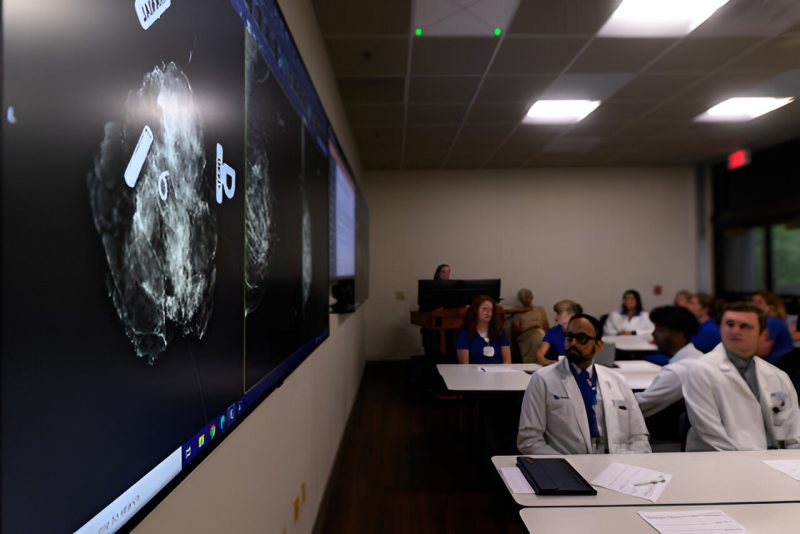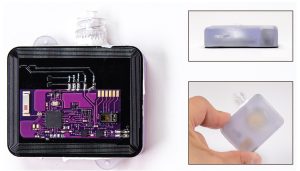Molecular tumor boards improve identification of cancer-linked genes

Results from a new University of Kentucky Markey Cancer Center study show that molecular tumor boards can play an important role in identifying potential inherited cancer risks, leading to better patient care.
The research, published in JCO Precision Oncology Sept. 8, showed that the UK Markey Cancer Center’s Molecular Tumor Board identified possible hereditary genetic mutations in 12% of patients with cancer who underwent tumor DNA testing.
Molecular tumor boards (MTBs) are composed of an interdisciplinary team of medical experts who use tumor genomic analysis to help oncologists choose cancer therapies tailored to each patient’s individual needs. When a physician requests a MTB review, patients’ tumors are tested for mutations using next-generation DNA sequencing (NGS).
In addition to standard genetic testing, NGS testing can also identify hereditary genetic mutations in patients. Patients with cancer who have certain hereditary mutations can benefit from additional treatments as well as increased cancer screening for themselves and their families.
“Tumor DNA testing is now standard for many cancers, but it has created a challenge in recognizing and managing possible inherited findings,” says Taylor A. Rives, M.D., the study’s lead author. “Our research shows that having a genetic counselor on the molecular tumor board can help address this issue.”
The study examined 2,355 patients who had NGS results reviewed by Markey Cancer Center’s MTB. Of these, 609 patients were flagged for genetic counseling and testing based on the MTB’s review. However, only 30% of these patients were actually referred for counseling by their doctors, with even fewer completing the testing.
Despite the low referral rates, the study found that when patients did undergo genetic testing, 27% had a hereditary cancer mutation. This knowledge can lead to better-targeted treatments and help family members understand their own cancer risks.
The research team also found that certain factors made patients more likely to complete genetic testing, including being female, having certain cancer types like ovarian or breast cancer, and the strength of evidence supporting the need for testing.
The study results show the value of having genetic experts on tumor boards to catch potential inherited cancer risks that might otherwise be missed. The authors also highlight the need for better systems to ensure patients get recommended genetic counseling and testing.
More information:
Taylor A. Rives et al, Clinical Utility of Molecular Tumor Board Review for Identification of Possible Germline Pathogenic Variants on Tumor Next-Generation Sequencing Reports, JCO Precision Oncology (2024). DOI: 10.1200/PO.24.00301
Citation:
Molecular tumor boards improve identification of cancer-linked genes (2024, September 27)
retrieved 28 September 2024
from https://medicalxpress.com/news/2024-09-molecular-tumor-boards-identification-cancer.html
This document is subject to copyright. Apart from any fair dealing for the purpose of private study or research, no
part may be reproduced without the written permission. The content is provided for information purposes only.








